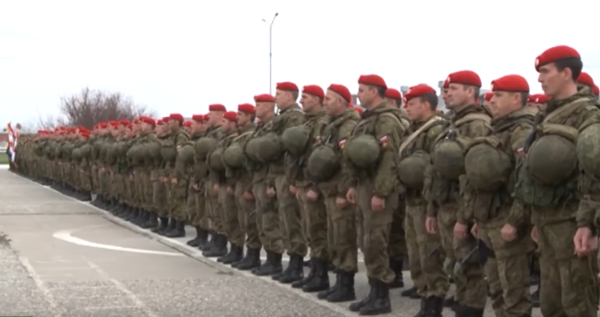Russia to place military police in Syrian de-escalation zones
As observers in the de-escalation zones in Syria, the deployment of Russian military policemen “is envisaged,” said Alexander Lavrentiev, special representative of the Russian president to Syria, at a press conference in Astana.
At the same time he noted that it is “still complicated” to talk about the presence of Russian observers, since “it depends on the Ministry of Defense.” Lavrentiev added, “But again, this issue has not been fully agreed upon. This will concern the issue of the status of forces in the de-escalation zone.”
The memorandum on the creation of de-escalation zones in Syria was adopted on May 4th by the “guarantors of the truce”, which are Russia, Turkey and Iran. According to the memorandum, in these zones, located on the line of contact between Bashar Assad’s forces and the opposition, fighting must be stopped. The exact boundaries of the zones were to be determined after the end of May.
The boundaries of two de-escalation zones in Syria have already been identified, but questions remain with regard to Idlib and the southern zone, Lavrentiev said. The time when the parties will come to an agreement is “just around the corner…The beginning of the process of reaching a stable regime to stop the hostilities” depends on the establishment of the de-escalation zone boundaries.
Earlier, the newspaper Kommersant wrote that the presence of foreign military personnel in the zones has not been ruled out.
In December, a military police battalion arrived in Aleppo from Chechnya. It was relieved by another battalion in April. In February, a battalion from Ingushetia was sent to Syria, and “peace agreements were signed to help in those settlements and cities where the sides are divided,” said the head of the republic, Yunus-Bek Yevkurov. The battalion from Ingushetia returned to Russia in June. Russia states that the main job of the Russian military police in Syria is to ensure the safety of Russian servicemen, mobile hospital personnel, and humanitarian convoys.
